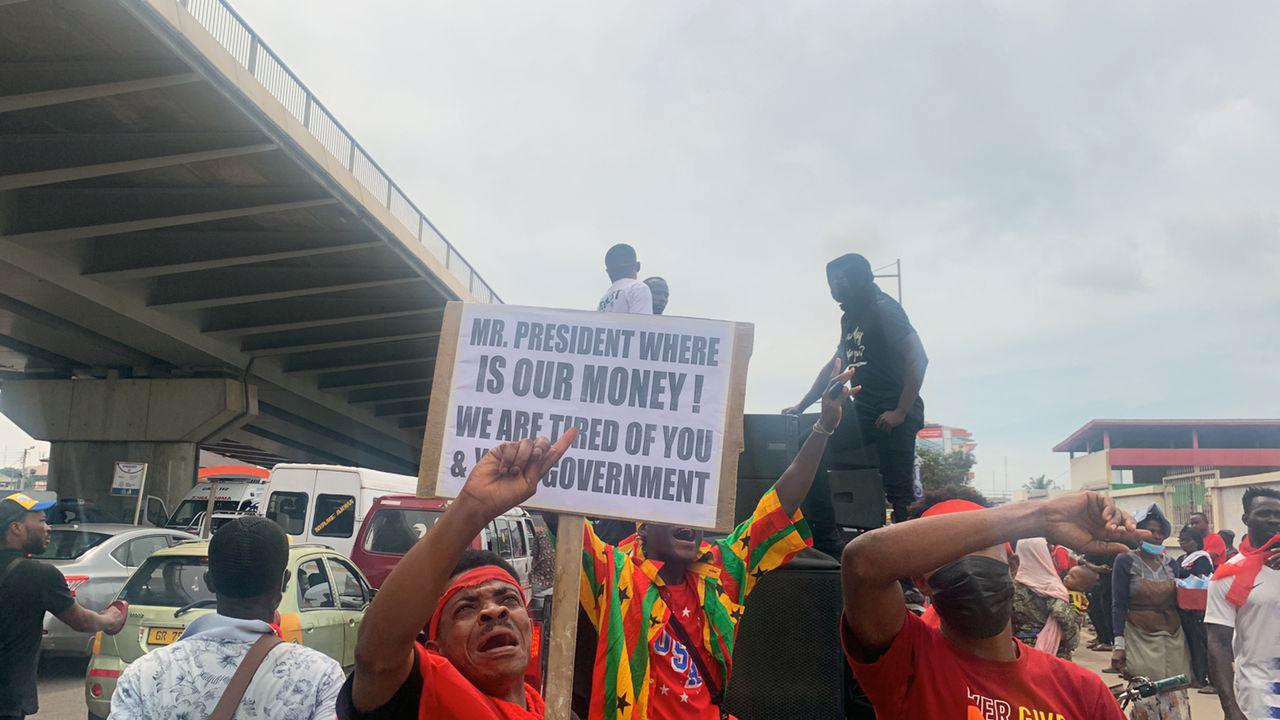‘The country is on its knees’: Ghana seeks IMF bailout amid economic woes, teachers’ strike
Last month, hundreds of Ghanaians took to the streets to protest for two consecutive days against rising food prices and the high cost of living.
Trader Mary Asamoah joined the protests. She said that life has become unbearable over the last few years for her and her family.
“How is President Akufo-Addo able to sleep at night for all the difficult times we are going through? Prices of food have become abnormal with so many taxes on fuel. The country is now on its knees. This is not what he promised us in 2016. The government has taken us for a ride, but we’ll surely fight back in the next election.”
Ghana, one of West Africa’s most prosperous nations, is now facing some serious economic challenges due to the COVID-19 pandemic and the Russia-Ukraine conflict, which has affected food and fuel prices.
In a huge reversal for President Akufo-Addo, the government is now seeking a loan from the International Monetary Fund to tackle Ghana’s economic woes.
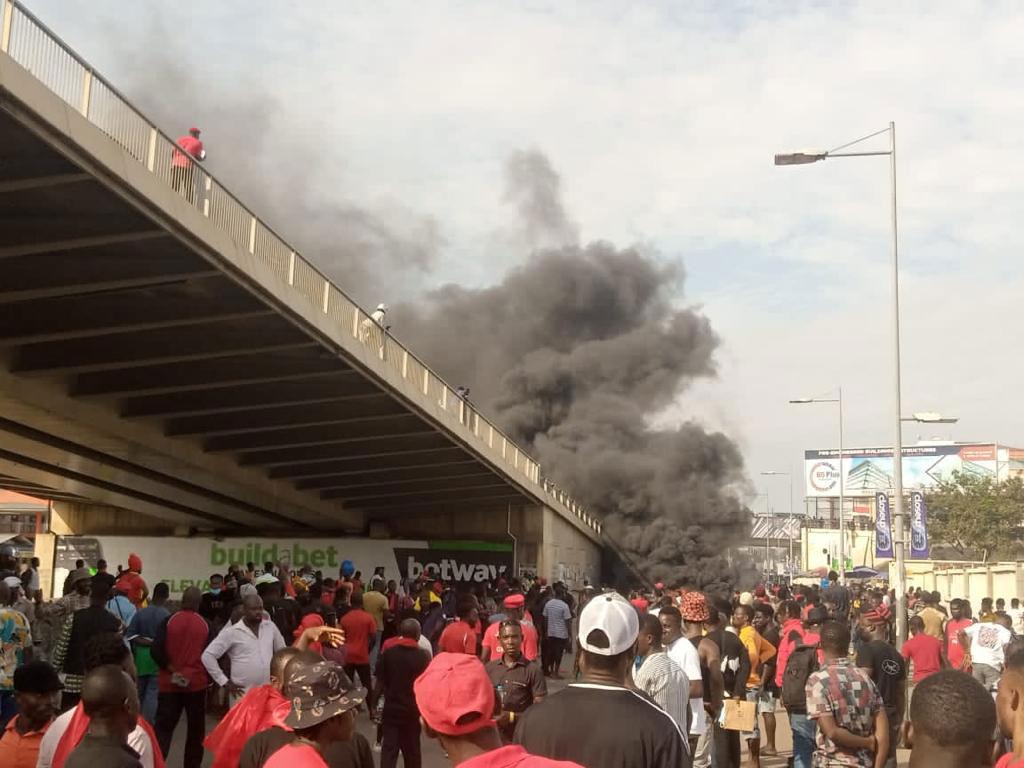
Akufo-Addo had campaigned on a “Ghana Beyond Aid” promise to avoid an IMF bailout during his tenure, touting that Ghana’s economy could thrive without help from international donors.
But the president recently said the decision to go to the IMF has become crucial to restoring public finances.
“We have decided to seek the collaboration of the [IMF] to repair in the short-run, our public finances, which have taken a severe hit in very recent times,” he said.
Ghana has struggled with high inflation and a weakening currency since January, as the price of food, fuel and basic needs continue to skyrocket.
Inflation rose to nearly 30% in June — the highest in 19 years.
Ghana also experienced several economic setbacks after lawmakers stalled on a $1 billion loan agreement with international banks and an unpopular electronic payments tax that was meant to generate revenues underperformed.
The government instituted a plethora of emergency measures, including a 50% cut to subsidized fuel for all ministers and heads of government institutions in April.
Ministers’ salaries were temporarily cut by 30%.
The Central Bank last month raised its main interest rate to 19%— the second major increase this year.
But none of these measures yielded desired results.
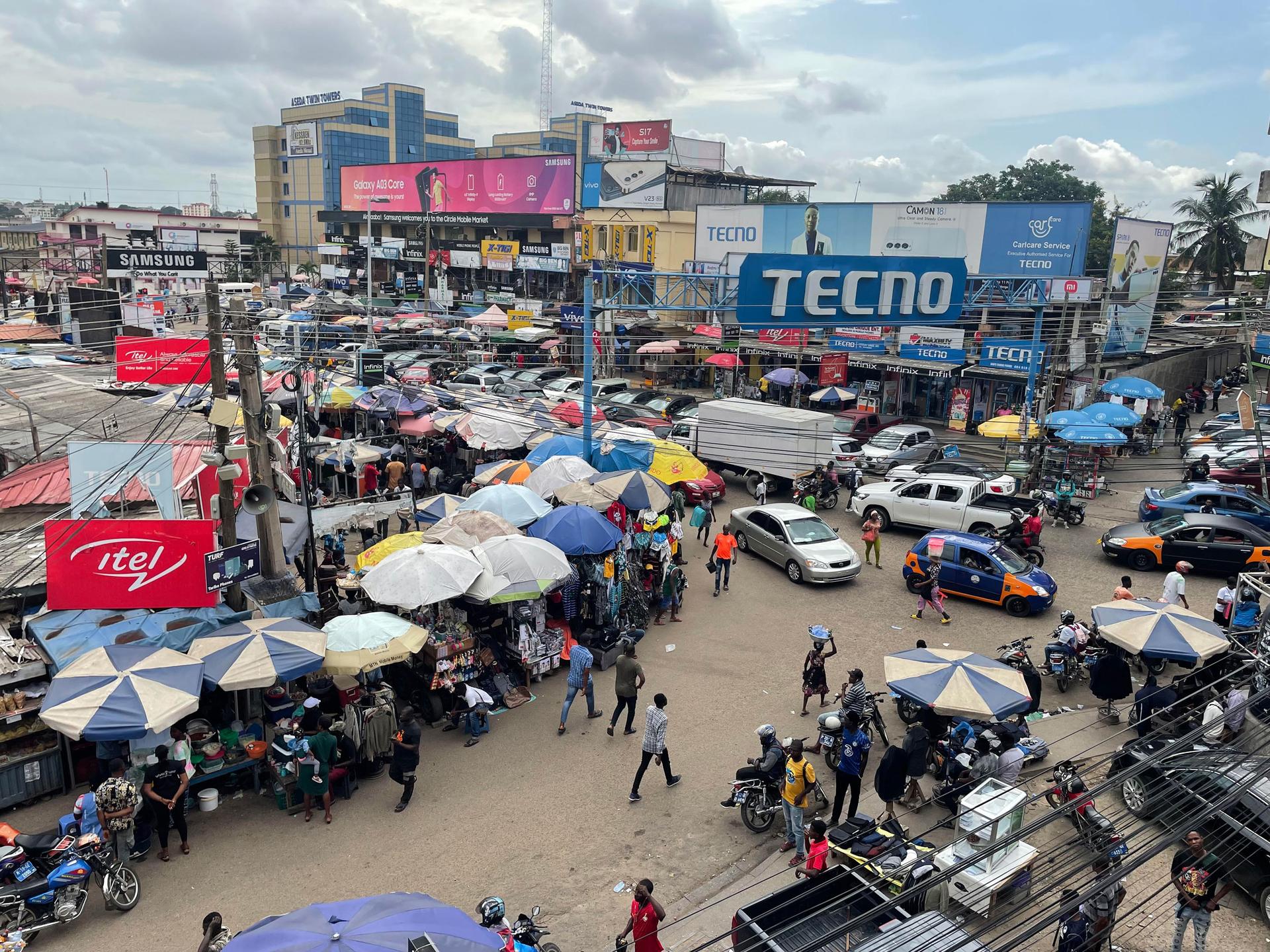
Many Ghanaians say the government’s decision to seek a bailout from the IMF comes as a surprise and a disappointment.
Michael Koomson, a street hawker in Accra, said that returning to the IMF was inevitable and that the president’s repeated pledges of a “Ghana Beyond Aid” was a sham.
“Is the president going to pick up his spit again from the floor? He was the same person who said that we’ll never go to the IMF but here we are now — we are all going there. And this is the only way out,” he said.
This will be Ghana’s 18th time seeking funds from the IMF.
Teachers on strike
The IMF bailout comes amid a national teachers’ strike sparked by Ghana’s economic crisis.
Kwaku Asamoah has been teaching for the past five years in Madina, a sprawling suburb outside Accra, Ghana’s capital.
But for almost two weeks, he has stayed away from the classroom and spends all his time at home.
Kwaku Asamoah is among nearly 350,000 teachers in Ghana who are currently on strike to demand a cost of living allowance.
Teaching, earning $250 a month, is one of the lowest-paying jobs in Ghana. The rising cost of living has made life extremely difficult, and he said he can barely feed his wife and two children.
“The system is just hard. We are really struggling. The life of a teacher right now is unbearable. Yes, it is.”
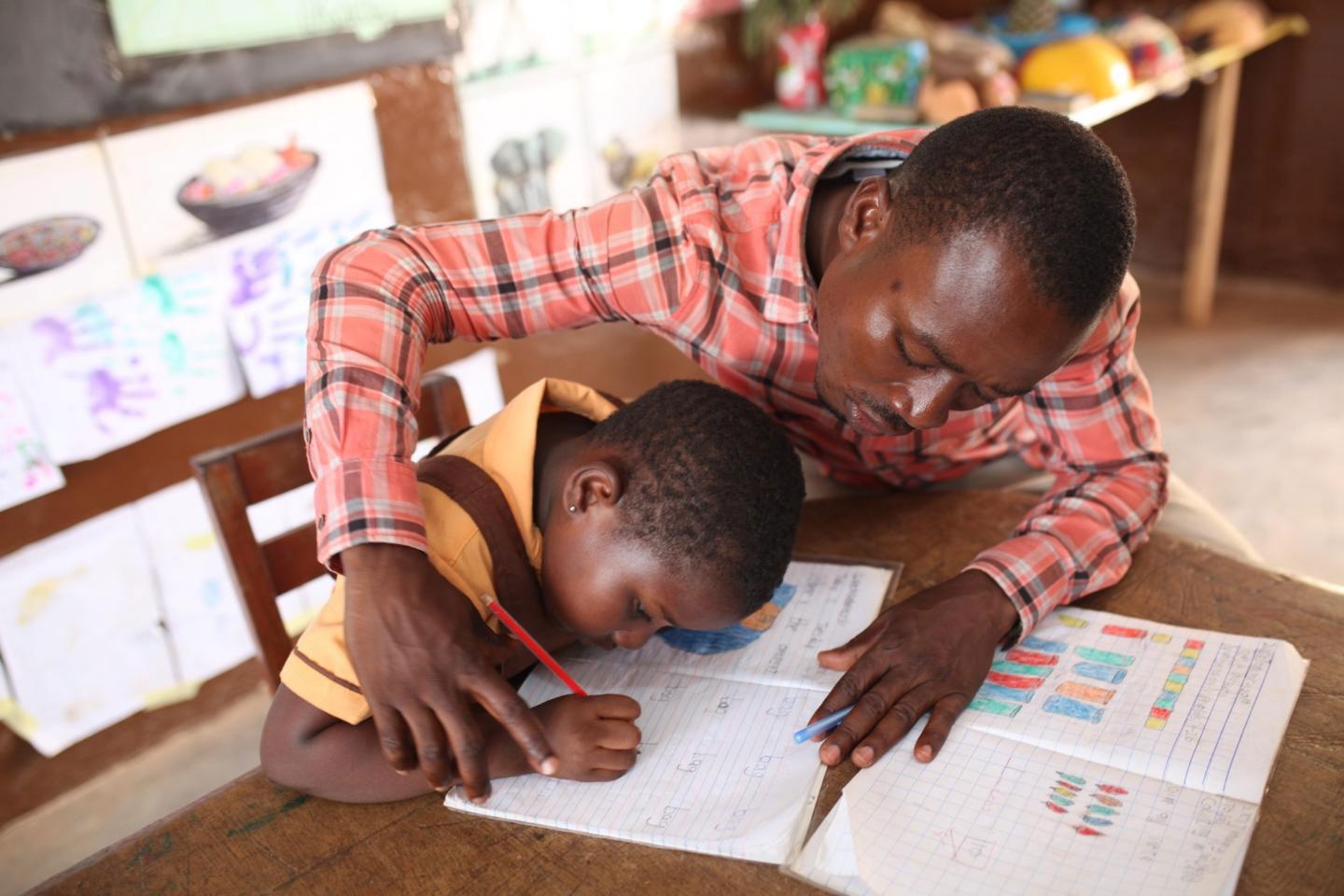
Teacher Prisca Nartey, in the Accra suburb of Nungua, expressed similar sentiments.
“We the teachers in Ghana have been taken for granted for far too long. We have reached our limits in these hard times. The hardship is just too much. If the government fails to respond positively to us, we’ll never step foot in the classroom,” she said.
Teachers hope that Ghana’s attempts to restore the economy will impact teachers’ salaries. But it remains unclear whether the government will use part of the IMF loan to meet the teachers’ demands.
For striking teachers like Kwaku Asamoah, no amount of negotiation will take them back to the classroom until their demands are met.
“We are drumming home our frustrations to the government that it is enough. At least the cost of living allowance will help mitigate the hardship of teachers in this country,” he said.
Kwaku Asamoah hopes to be paid soon so he can go back to do what he loves best— teaching.
Short-term bailout, long-term growth
The IMF team arrived in Ghana last week to kickstart talks.
Ghana may seek between $1.5 to $3 billion from the IMF to shore up the country’s finances and win back access to the global capital markets. This would allow the country to balance its nearly $1 billion deficit.
The IMF raised some concerns about Ghana’s debt position. IMF representative Carlo Sdralevich said that investors’ concerns have triggered credit rating downgrades amid other adverse developments. But the IMF confirmed its commitment to supporting Ghana and said it would undertake a debt sustainability analysis before any agreement on a deal is made with the government.
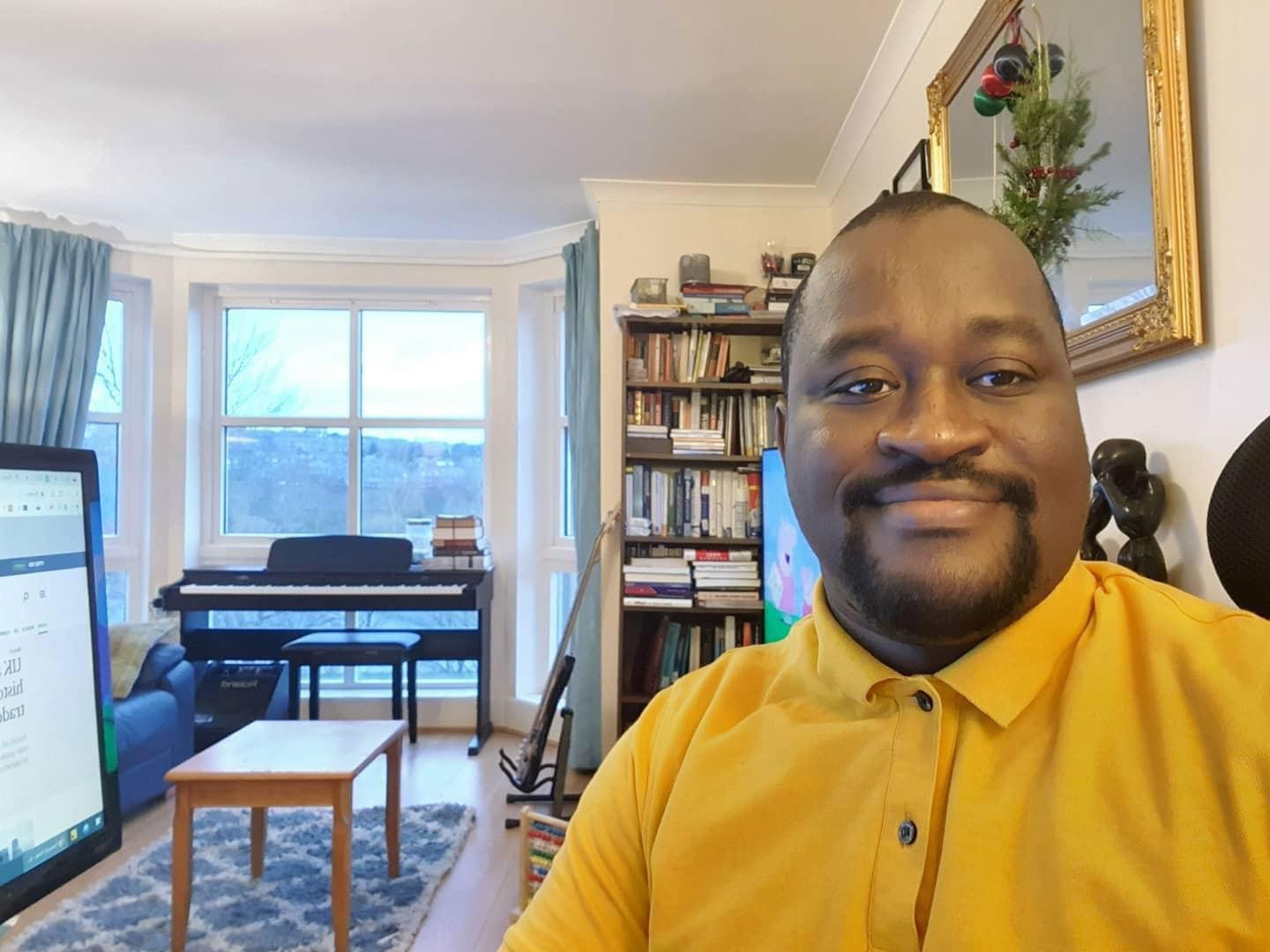
Theo Acheampong, an economist, said that Ghana’s economic woes began long before the pandemic and that mismanagement is to blame.
Ghana is actually ranked higher than Senegal or Ivory Coast in terms of debt sovereignty, he said, but those countries are managing better than Ghana.
Acheampong is also concerned that the IMF bailout may come with conditions that could worsen Ghanaians’ lives, like cuts to government spending to restore debt sustainability.
“Already, debt to [gross domestic product] and other metrics is way out of gear. We are talking almost 78% of GDP as of the last quarter of this year. So, within that, I see probably also the government agreeing with the fund to limit hiring in certain aspects of the public service,” he said.
When Ghana last sought IMF assistance in 2015, it received almost $1 billion, and there was a freeze on public-sector employment such as teachers, nurses and civil service positions.
Beyond the IMF bailout, Acheampong said the country needs to do more to stabilize and grow the economy such as exporting more, importing less and producing more of the food that Ghanaians eat.
This would allow Ghana to continue to “address issues of rising inequality within the system,” Acheampong said.
Related: ‘Everything is destroyed’: Extreme flooding in Ghana tests climate resilience
The story you just read is accessible and free to all because thousands of listeners and readers contribute to our nonprofit newsroom. We go deep to bring you the human-centered international reporting that you know you can trust. To do this work and to do it well, we rely on the support of our listeners. If you appreciated our coverage this year, if there was a story that made you pause or a song that moved you, would you consider making a gift to sustain our work through 2024 and beyond?
